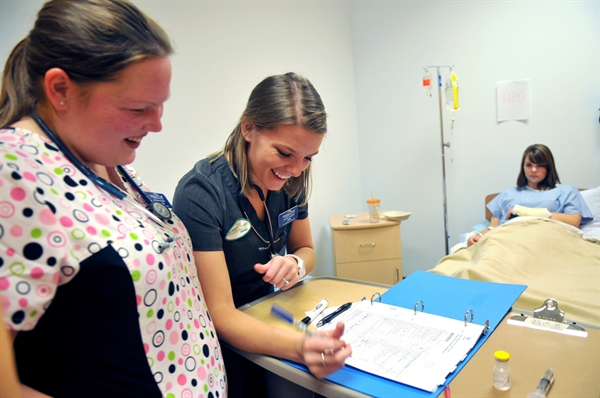When you first step foot on St. Paul’s School of Nursing campus, you’ll likely be filled with excitement, wonder, and curiosity. Once you complete your degree, however, we can almost guarantee that you’ll be changed… not only will you have learned a significant quantity of content from your coursework, but you will have also gained hands-on skills, and as important as the professional growth, you will also have grown personally in your disposition, attitude and perspective. At St. Paul’s, as with many learning institutions, the education you acquire and the people you meet while in school will change you in ways you probably can’t predict.
Hindsight is 20/20, especially as you gain more wisdom and experience. When we know more, we often wish we could change how we thought or acted in the past. But the truth is that you don’t know what you don’t know. To help students better prepare for their careers, we gathered advice from experienced nurses about the things they wish they had known when they were in nursing school.
Learning never stops
Nursing school provides you with a great foundation, but don’t think you have to (or will!) know it all when you graduate. You’ll do plenty of learning on the job with your preceptor as well as your fellow novice nurses. Go into your clinical experiences with an attitude of curiosity and a willingness to be taught. New procedures, technologies, and other medical advancements are regularly changing the field of healthcare. In addition to learning on the job, veteran nurses encourage you to sign up for additional certifications or classes for ongoing learning. The effort to keep learning and growing can help your career trajectory.
Take advantage of your preceptor
Your preceptor relationship will be one of the most important ones you will have as a nurse. Ask questions and take notes. Be appreciative of their time by remembering to say, “thank you.” If possible, try to connect outside of the workplace to get to know each other on a more personal level. If you are able to grab coffee or take a walk during your lunch break, you can talk with your preceptor without the pressure of patient care. Your preceptor will be an important mentor in your career network.
Don’t be afraid to ask questions
You’re not expected to know everything at the start of your career. While you may want to prove yourself, don’t be afraid to ask questions. Remember, there are no dumb questions. Your coworkers want to see you succeed, and by drawing on their knowledge, everyone wins, including the patients.
Know your limits
Everyone needs a break from time to time and pushing yourself too hard could backfire and result in burnout. Instead of trying to be a superhero nurse, take time for yourself to rest and recharge. And know the signs of feeling stressed and overwhelmed. When you care for yourself, you can better care for your patients.
Learn to prioritize
There are only so many hours in the day, and you’ll want to look at your to-do list and determine what tasks are most important. Create your plan when you’re getting a patient report during your shift change, identifying the critical tasks and those that can wait. And be sure not to try to multitask, especially when you’re delivering medications. You want to give all tasks your complete focus and undivided attention.
All nurses were once nursing students. And there is no better time than right now to begin thinking about becoming a nurse. Visit the Nursing page on the St. Paul’s School of Nursing website, or call (855) 822-3018 for more information or to schedule a campus tour.


